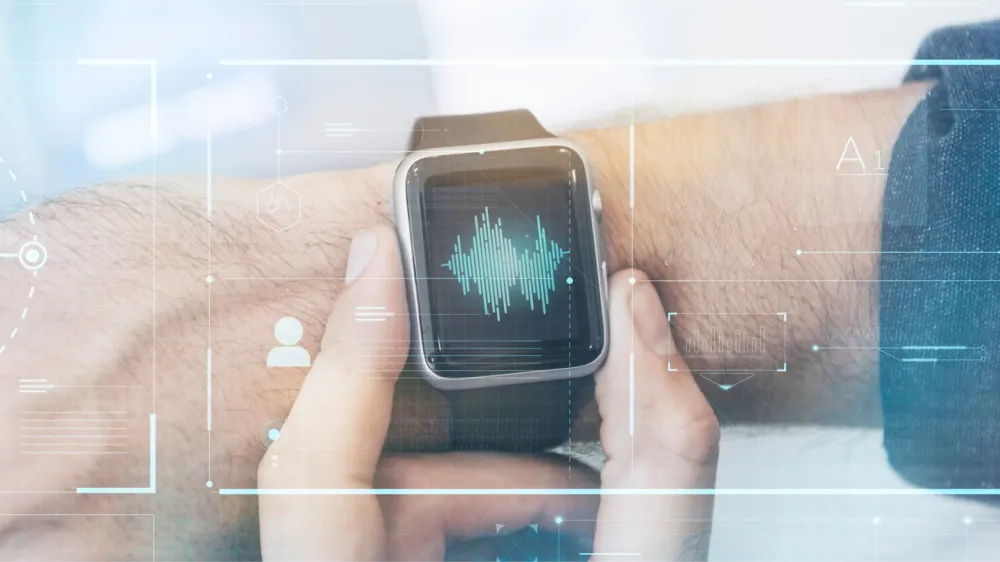Introduction
Over the last decade, technology has transformed how people monitor and manage their health. Among the most impactful innovations are smart wearables such as fitness trackers, smartwatches, and health-monitoring bands. These devices are not just trendy accessories but powerful health companions that collect real-time data, encourage healthy habits, and provide insights that were once available only in hospitals or clinics. As the global fitness technology industry grows rapidly, smart wearables are redefining what it means to take charge of personal well-being.
Table of Contents
The Evolution of Smart Wearables
Smart wearables began as simple step counters, but they have evolved into sophisticated health tools capable of tracking everything from heart rate and oxygen levels to sleep cycles and stress patterns. With the integration of AI and machine learning, wearables can now analyze data intelligently and provide personalized health recommendations.
Modern devices such as the Apple Watch, Fitbit, and Samsung Galaxy Watch go beyond counting steps. They detect irregular heart rhythms, monitor blood oxygen levels, and even perform electrocardiograms (ECGs). This evolution demonstrates how wearable technology has moved from basic fitness tracking to proactive health management.
Personalized Health Insights
One of the most significant benefits of smart wearables is the ability to deliver personalized health insights. These devices continuously collect biometric data, enabling users to understand how their lifestyle choices affect their overall well-being.
For example, someone trying to improve sleep quality can use data from their smartwatch to analyze sleep duration, disturbances, and REM cycles. Similarly, fitness enthusiasts can track their calorie burn, exercise intensity, and recovery time, allowing them to fine-tune their workouts for better results.
The shift from general fitness advice to personalized data-driven recommendations empowers users to make informed decisions about their health.
AI-Powered Preventive Health Monitoring
Artificial Intelligence plays a crucial role in transforming smart wearables into predictive health tools. Using continuous data collection and pattern recognition, these devices can detect early signs of medical conditions.
For instance, an AI algorithm in a smartwatch might alert users about abnormal heart rhythms or elevated stress levels that could signal potential cardiovascular issues. Some devices can even monitor blood sugar fluctuations, helping people with diabetes maintain stable glucose levels.
This predictive capability makes wearables an essential part of preventive healthcare, shifting focus from treatment to early detection and prevention.
Integration with Healthcare Systems
The future of healthcare is connected, and smart wearables are bridging the gap between patients and professionals. Hospitals and clinics increasingly use wearable data to monitor patients remotely, reducing the need for frequent visits.
Doctors can access a patient’s heart rate trends, activity levels, or sleep reports to make more accurate diagnoses. Moreover, fitness and health apps integrated with wearables can securely share this data with healthcare providers, making treatment more efficient and evidence-based.
This integration of wearable data with medical records marks a significant advancement toward personalized and continuous healthcare.
Encouraging an Active Lifestyle
One of the simplest yet most powerful effects of wearable technology is its ability to motivate users. Through reminders, goal tracking, and real-time progress updates, smart wearables encourage consistent activity.
Many users find motivation in completing daily step goals or receiving alerts to stand or move after long periods of inactivity. Gamified elements, such as achievement badges or challenges among friends, make fitness engaging and social.
This behavioral change, supported by consistent data feedback, helps people adopt healthier habits and sustain them over time.
Privacy and Data Security Concerns
While smart wearables provide valuable health insights, they also raise concerns about data privacy and security. These devices continuously collect sensitive health information, which, if mishandled, could lead to privacy breaches.
Manufacturers are increasingly focusing on encryption, user consent, and transparent data policies. Users should also take proactive steps, such as reviewing app permissions and avoiding unverified third-party integrations. Maintaining trust is critical for the continued success of wearable technology in healthcare.
The Future of Smart Wearables
The next generation of wearables will go far beyond wristbands. Researchers are developing smart clothing, contact lenses, and even skin patches that can monitor health metrics in real-time. These innovations will bring continuous health tracking to an entirely new level.
Moreover, as Artificial Intelligence and 5G connectivity evolve, wearables will become more accurate, responsive, and capable of offering real-time health advice. By 2030, wearable technology will likely be a fundamental part of both healthcare systems and personal wellness routines.
Conclusion
Smart wearables have transformed how we view health and fitness. What began as a simple step counter has evolved into a sophisticated health companion capable of saving lives through predictive analytics and personalized insights. By combining real-time monitoring, AI analysis, and seamless healthcare integration, wearable technology is empowering individuals to live healthier, more informed lives.
As innovation continues, smart wearables will not just track our health but actively help improve it, marking a new era in preventive and personalized medicine. Also Check About us.






